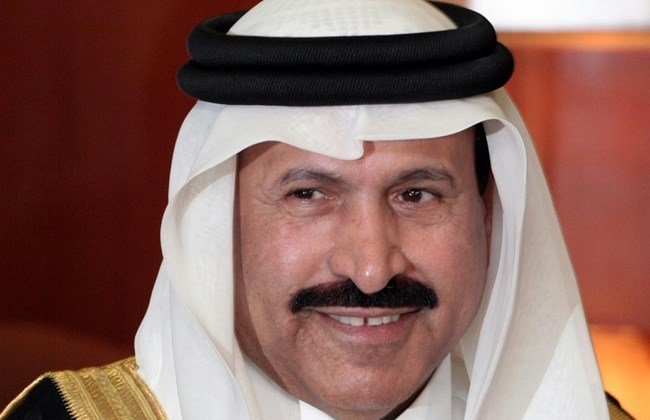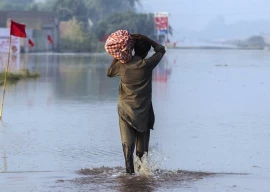
The 5th of August 2021 marks the day of solidarity with the people of Kashmir in the internationally contested territory of Jammu and Kashmir. For Pakistan, it is the second anniversary of Youm-e-Istehsal or the Day of Exploitation. On this day in 2019, India annexed the erstwhile Muslim majority state after annulling Article 370 of its constitution, which gave it a semi-autonomous status. India also divided the region into Jammu and Kashmir, and Laddakh, and made them part of the Indian Union.
This unilateral act by India was a violation of the UN Security Council resolutions, which guarantee the people of Kashmir their right to self-determination and recommend the holding of UN-mandated plebiscite in the disputed territory. This territory is divided by the Line of Control between India and Pakistan. However, Azad Jammu and Kashmir (AJK) in Pakistan continues to retain autonomy, and has just been through elections to form a new government.
The self-determination issue is central to the Kashmir question. On the eve of Partition in 1947, the fate of Kashmir was to be decided like the rest of several hundred princely states in British India: a referendum in which state subjects were to decide through popular vote whether to join Pakistan or India. However, when the Maharaja of Kashmir unilaterally sought accession of his state with India, the first Indo-Pak fight erupted over the suzerainty of Kashmir (which would not be the last). India took the dispute to the UN Security Council, which resolved to settle the dispute in the same manner as the Partition Plan had done before.
However, until this day, the Security Council resolutions remain unimplemented, even while being still intact in the Council’s agenda for conflict resolution. It is in this backdrop that India’s unilateral act of abrogating Article 370, and dividing and annexing Jammu and Kashmir constitute a serious violation of the International Law. Under the Security Council resolutions, India and Pakistan are obligated to ensure autonomy in their respective parts of the disputed land. And, neither of them can change the geographical status or demographical composition of Kashmir.
What India did on the 5th of August 2019 does not confine to territorial subjugation of the disputed Jammu and Kashmir alone. Since then, it has also taken several steps to reshape the demography of the region in order to deny its majority people their Muslim identity. This is because Article 35-A, which became part of Article 370 in 1954, was also revoked on that fateful day. This Article defined Kashmiri residency, allowing only those who hailed from the region the right to land, jobs and education. A process of demographic reengineering has been in place in the disputed land; interestingly, in the plausible cover of global Covid-19 pandemic.
As Australia did in the case of Aboriginals or Israel has done with the Palestinians, this is pure and simply settler colonialism. Hence, in the past two years, the tragic story of Kashmir has moved beyond the issue of self-determination to a far more serious problem of Kashmiri demography and ethnicity being reshaped at the expense of the majority Muslim population.
In Hindu-majority India, Jammu and Kashmir is the only Muslim majority region. Its religion-wise composition as per 2011 census was: 68% Muslims, 28% Hindus and the remaining 4% largely Sikhs and Buddhists. The Muslim population is concentrated in the Kashmir Valley, with state capital Srinagar. Laddakh has Buddhist majority and Jammu is Hindu dominated. Thus, the particular focus of the current demographic reengineering process is the Kashmir Valley. And, tangible demographic shift may have already occurred there.
In the past two years, India has openly encouraged the non-Kashmiris to settle in the disputed land, besides handing over chunks of it to Indian businesses for investment in tourism and other lucrative sectors. The new Domicile Order has already awarded several hundred thousand Indian citizens the status of Kashmiri residents. Most of them are reportedly of Hindu faith and have served for years largely in the security sector. They enjoy all those privileges which Kashmiri residents had under Article 35-A.
Likewise, the new Land Act allows the Indian citizens to acquire agricultural land (which forms 90% of the total territory) in Jammu and Kashmir, and use it to set up non-agricultural business ventures. Efforts are also reportedly underway to recreate political constituencies through territorial de-limitation in such a manner that the electoral seats in Jammu will increase and those in the Kashmir Valley will decrease. The aim is to deny Muslims the majority in any future elections for state legislature or any other political dispensation.
Ideally, the Kashmiri people should have long exercised their inalienable right to self-determination under the UN Security Council resolutions. But neither the UN has done anything to fulfil its promised mandate of holding a free and fair plebiscite in the disputed territory, nor has the international community forced India to respect the UN verdict, which was issued in response to India’s own referral of Kashmir dispute to the Security Council in 1948.
Realistically, since the 1974 Simla Accord, India and Pakistan have tried to seek a bilateral settlement of Kashmir, which is yet to deliver any outcome. This year as well, after both countries agreed to ceasefire on the Line of Control through the UAE’s mediation, there has been talk of the revival of peace process. Yet, there is no follow-up. During the Musharraf regime in 2004, Pakistan had even sought to settle Kashmir by offering an out-of-the-box solution, but again to no avail.
Prime Minister Imran Khan recently proposed to hold a referendum in AJK after the UN plebiscite, in which Kashmiri people would be given the choice of independence or joining Pakistan. The problem is that the precondition of such a referendum – i.e. the implementation of UN Security Council resolutions – is nowhere in sight. Meanwhile, India has been able to maintain the status quo in the disputed territory, using brute force to quell Kashmiri resistance since the start of the 1990s. Now it has upped the ante by first annexing the state of Jammu and Kashmir and then reshaping its demography.
In response to India’s unilateral action of the 5th of August 2019, Pakistan could have made its autonomous regions of Azad Jammu and Kashmir, and Gilgit-Baltistan as two additional provinces. However, this action would have compromised its proclaimed status as a defender of Kashmiri right to self-determination. Hence, its current Kashmir policy is based on strategic restraint, with the expectation that India’s Hindu nationalist regime would be eventually exposed before the world for its unilateral violation of international law and aggressive pursuit of settler colonialism in the disputed territory.
Meanwhile, the Kashmir tragedy continues to unfold, with global conscience still far from realising its horrible effects on innocent civilians. Will the world ever rise to their rescue? Only time will tell. But, for now, it is important that this tale must be told – and retold.
Like Opinion & Editorial on Facebook, follow @ETOpEd on Twitter to receive all updates on all our daily pieces.
The writer can be reached at aliasseri1953@gmail.com



1725967717-0/Untitled-design-(3)1725967717-0-165x106.webp)









COMMENTS (4)
Comments are moderated and generally will be posted if they are on-topic and not abusive.
For more information, please see our Comments FAQ